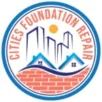Lowertown Neighborhood Guide
Everything you need to know about living, working, and building in Lowertown
📍 Quick Overview

McGhiever, CC BY-SA 3.0 <https://creativecommons.org/licenses/by-sa/3.0>, via Wikimedia Commons
✨ What Makes Lowertown Special
You’re right along the Mississippi River, so you get those great river views and access to the trail system that runs along the water.
It’s an interesting mix – artists who’ve been here since the area was cheap and rough, plus professionals and empty-nesters who moved in when it got trendy.
You can walk to downtown St. Paul, hop on light rail to get anywhere in the metro, or drive five minutes to be on any major highway.
Natural Beauty
Community Feel
Convenience
The old brick and limestone buildings give the whole area this industrial character that you don’t find anywhere else in the Twin Cities. Mears Park sits right in the middle of everything, creating this green space surrounded by all that historic architecture.
People here seem to appreciate living somewhere with history and character instead of generic suburban stuff. There’s always something happening – concerts in the park, gallery walks, people actually using the sidewalks and outdoor spaces.
The river trails connect you to the whole Twin Cities bike system. It’s urban living without feeling cramped, and you’re close to everything that matters.
🏠 Living & Building in Lowertown
Neighborhood Amenities
Housing & Development
Parks & Recreation: Mears Park hosts farmers markets and concerts. The river trails are perfect for walking, running, or biking. You’re close to downtown events and the Xcel Energy Center for big concerts and Wild games.
Shopping & Dining: Great restaurant scene with everything from casual spots to upscale dining. Local galleries, coffee shops, and unique stores. The St. Paul Farmers Market is right here on weekends.
Schools & Services: Close to downtown services and transit connections. Some residents use St. Paul schools, others choose private options. Libraries, medical facilities, everything’s accessible.
Transportation: Light rail station right in the neighborhood connects you to the airport and Minneapolis. River trails for biking. You can walk to most things you need, though parking can be at a premium.
- Mostly converted warehouse and industrial buildings turned into lofts and condos
- Original construction from the late 1800s and early 1900s – heavy timber, brick, limestone foundations
- Some newer construction mixed in, but it’s designed to fit the historic character
- Foundation work often involves massive old foundations that were built to support heavy industrial loads
- High ceilings, big windows, and open floor plans in most residential conversions
“Foundation work in Lowertown means dealing with buildings that were constructed like fortresses – these old warehouse foundations were built to support rail cars full of grain and heavy machinery. Most foundation issues here involve moisture control and updating old drainage systems rather than structural problems. The limestone and brick foundations are solid, but century-old buildings near the river sometimes deal with groundwater issues. Access can be interesting when you’re working in converted buildings with underground parking and utility tunnels.”
🗺️ Area Map
❓ Quick Facts About Lowertown
Neighborhood Stats
Distance to downtown: Walking distance to downtown St. Paul core
Property types: Primarily loft condos and apartments in converted industrial buildings
Zoning: Mixed-use urban district with residential, commercial, and light industrial
Utilities: Full urban services, though some buildings need modern utility updates during conversions
Planning a Project Here?Foundation work here usually involves adapting old industrial foundations to modern residential needs. The original construction is incredibly solid – limestone block and thick brick foundations built to last centuries. Main challenges are moisture control, especially in buildings close to the river, and updating old utility connections. Many buildings have shared walls and underground parking, which affects how you plan repair work. Historic preservation guidelines may apply to exterior work on some buildings.
🚜 Local Foundation Repair Services
Distance to downtown: Walking distance to downtown St. Paul core
Property types: Primarily loft condos and apartments in converted industrial buildings
Zoning: Mixed-use urban district with residential, commercial, and light industrial
Utilities: Full urban services, though some buildings need modern utility updates during conversions

